Letter to a Hindoo - [2]
One has already seen not only from your letter and from the articles in «Free Hindustan», but also from the entire Hindoo political literature of our times, that the majority of the leaders of public opinion among the native races of India, while no longer ascribing any significance to those religious teachings which were professed, and are professed by the Hindoo peoples, now find the sole possibility of deliverance from the oppression they endure, in embracing those anti-religious and subtly immoral forms of social order in which the English and other pseudo Christian nations live to-day. Nothing shows more clearly than this, the total absence of religious consciousness in the minds of the present day leaders of Hindoo peoples, than does this tendency to instil into the hearts of the natives the acceptance of the forms of life in operation amongst European nations. Meanwhile, in the absence of this true religious consciousness and the guidance of conduct flowing from it, in the absence which is common in our times to all the nations of the East and the West, from Japan to England and America: lies the chief if not the sole cause of the enslavement of all the Indian peoples by the English.
II
О ye, who see perplexities over your heads and beneath your feet, to the right and to the left! you will be an eternal enigma unto yourselves, until you become humble and joyful as children. Then you will find Me, and having found Me in yourselves, you will rule over worlds and looking out from the great world within to the little world without, you will bless everything that is and find all is well with time and with you.
Krishna P. 164.
In order to make my thoughts clear I must go back a considerable time.
We do not know, and cannot know (I boldly say – we need not) how mankind lived millions, or even tens of thousands of years ago; but in all those times of which we have any reliable knowledge, we find that Humanity has lived in separate tribes, clans, nations, in which the majority, submitting to the apparently inevitable, has permitted the coercive rule of one, or several persons of the minority. We know this beyond a doubt. Notwithstanding the external diversity of events and persons, such an organisation of human life has manifested itself in a similar way, in all the countries of whose previous history we know anything. And such an order of life, the further back you go, was always looked upon as the necessary basis for concordent social intercourse by both the rulers and the ruled.
Thus it was everywhere. But in spite of such an external order of life having existed for centuries and continuing even until now, a long time ago – thousands of years before our time, in the midst of different nations and often from out of the very centre of this order of life resting on coercion, one and the same thought has been expressed, – that in every individual one spiritual source manifests itself, which is life itself, and that this Spiritual source tends to unification with everything which is homogeneous with it, and attains this unification by love. This thought in its various forms has been expressed with more or less completeness and lucidity at different times and in various places. It has been expressed in Brahminism, Judaism, Mazdeism (the teaching of Zoroaster), Buddhism, Taoism, Confucianism, in the writings of the Greek and Roman sages, and in Christianity and Mohammedanism. Already the fact that one and the same thought has been expressed in the midst of the most diverse nations and at different times and places, indicates that this thought was inherent in human nature and contained the truth in itself.
But this truth appeared to those who considered that the only possible way of uniting people into societies, was violence on the part of one set to others to be in opposition to the existing order, and, moreover, at the time of its first appearance, it was expressed in such a vague fragmentary manner, that although the people embraced it as a theory, they were unable to accept it as an authoritative guidance for conduct. Besides, in regard to all the expressions of this truth as it was gradually proclaimed amongst people whose life was founded on violence, always occurred one and the same thing, vis. those who enjoyed the benefits derived from power finding that the recognition by the people of this truth undermined their position, consciously or unconsciously distorted this truth by every means in their power, attaching to it attributes and meanings totally foreign to it, and also opposed its dissemination by downright violence. Thus the truth which is so natural to humanity – that human life should be guided by the spiritual principle which is the foundation of human life and manefests itself in love, – in order to enter man’s consciousness had to struggle not only with the incompleteness of its expression and the intentional and unintentional distortions of it, but also with deliberate violence which compels by means of punishments and persecutions the acceptance of that explanation of the religious law established by the authorities, which is opposed to this truth. Such a misrepresentation and obscuration of the new but as yet imperfectly explained truth, took place everywhere, in Confucianism, Taoism, Buddhism, Christianity, in Mohammedanism and also in your Brahminism.
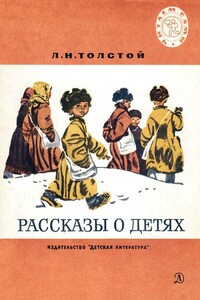
Рассказы, собранные в этой книге, были написаны великим русским писателем Львом Николаевичем Толстым (1828–1910) специально для детей. Вот как это было. В те времена народ был безграмотный, школ в городах было мало, а в деревнях их почти не было.Лев Николаевич Толстой устроил в своём имении Ясная Поляна школу для крестьянских детей. А так как учебников тоже не было, Толстой написал их сам.Так появились «Азбука» и «Четыре русские книги для чтения». По ним учились несколько поколений русских детей.Рассказы, которые вы прочтёте в этом издании, взяты из учебных книг Л.

Те, кто никогда не читал "Войну и мир", смогут насладиться первым вариантом этого великого романа; тех же, кто читал, ждет увлекательная возможность сравнить его с "каноническим" текстом. (Николай Толстой)
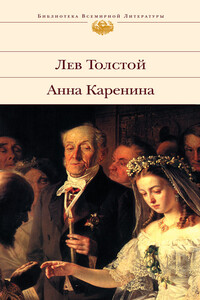
«Анна Каренина», один из самых знаменитых романов Льва Толстого, начинается ставшей афоризмом фразой: «Все счастливые семьи похожи друг на друга, каждая несчастливая семья несчастлива по-своему». Это книга о вечных ценностях: о любви, о вере, о семье, о человеческом достоинстве.

В томе печатается роман «Воскресение» (1889–1899) — последний роман Л. Н. Толстого.http://rulitera.narod.ru.

Детство — Что может быть интереснее и прекраснее открытия мира детскими глазами? Именно они всегда широко открыты, очень внимательны и на редкость проницательны. Поэтому Лев Толстой взглянул вокруг глазами маленького дворянина Николеньки Иртеньева и еще раз показал чистоту и низменность чувств, искренность и ложь, красоту и уродство...
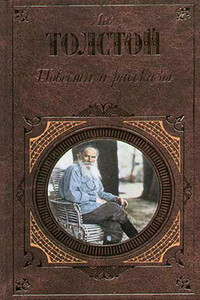
В книге рассказывается история главного героя, который сталкивается с различными проблемами и препятствиями на протяжении всего своего путешествия. По пути он встречает множество второстепенных персонажей, которые играют важные роли в истории. Благодаря опыту главного героя книга исследует такие темы, как любовь, потеря, надежда и стойкость. По мере того, как главный герой преодолевает свои трудности, он усваивает ценные уроки жизни и растет как личность.

Рассказ приоткрывает «окно» в напряженную психологическую жизнь писателя. Эмоциональная неуравновешенность, умственные потрясения, грань близкого безумия, душевная болезнь — постоянные его темы («Возвращение Будды», «Пробуждение», фрагменты в «Вечере у Клэр» и др.). Этот небольшой рассказ — своего рода портрет художника, переходящего границу между «просто человеком» и поэтом; загадочный женский образ, возникающий в воображении героя, — это Муза или символ притягательной силы искусства, творчества. Впервые — Современные записки.
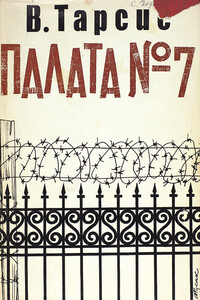
Валерий Тарсис — литературный критик, писатель и переводчик. В 1960-м году он переслал английскому издателю рукопись «Сказание о синей мухе», в которой едко критиковалась жизнь в хрущевской России. Этот текст вышел в октябре 1962 года. В августе 1962 года Тарсис был арестован и помещен в московскую психиатрическую больницу имени Кащенко. «Палата № 7» представляет собой отчет о том, что происходило в «лечебнице для душевнобольных».
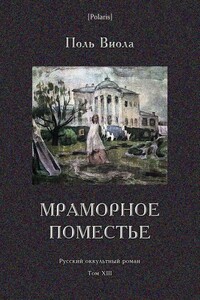
Оборотничество, ликантропия, явления призраков из потустороннего мира, круговорот душ и диктат рока — таковы темы мистическо-фантастических произведений Поля Виолы, разворачивающихся на фоне странных «помещичьих гнезд» Полесья. Под псевдонимом «Поль Виола» (Paul Viola) в печати выступал киевский поэт, прозаик и переводчик П. Д. Пихно (1880–1919). Его рассказ «Волчица» и повесть «Мраморное поместье», вошедшие в настоящую книгу, переиздаются впервые.
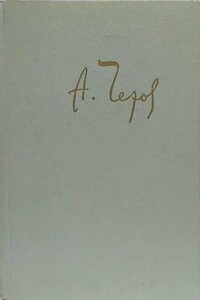
В книге рассказывается история главного героя, который сталкивается с различными проблемами и препятствиями на протяжении всего своего путешествия. По пути он встречает множество второстепенных персонажей, которые играют важные роли в истории. Благодаря опыту главного героя книга исследует такие темы, как любовь, потеря, надежда и стойкость. По мере того, как главный герой преодолевает свои трудности, он усваивает ценные уроки жизни и растет как личность.
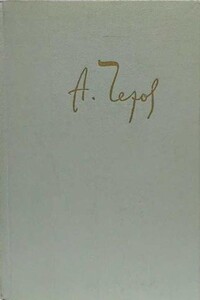
В книге рассказывается история главного героя, который сталкивается с различными проблемами и препятствиями на протяжении всего своего путешествия. По пути он встречает множество второстепенных персонажей, которые играют важные роли в истории. Благодаря опыту главного героя книга исследует такие темы, как любовь, потеря, надежда и стойкость. По мере того, как главный герой преодолевает свои трудности, он усваивает ценные уроки жизни и растет как личность.

В книге рассказывается история главного героя, который сталкивается с различными проблемами и препятствиями на протяжении всего своего путешествия. По пути он встречает множество второстепенных персонажей, которые играют важные роли в истории. Благодаря опыту главного героя книга исследует такие темы, как любовь, потеря, надежда и стойкость. По мере того, как главный герой преодолевает свои трудности, он усваивает ценные уроки жизни и растет как личность.